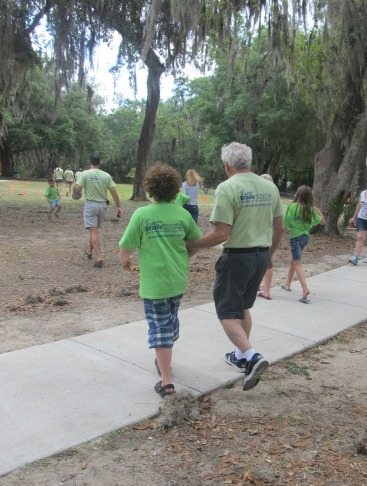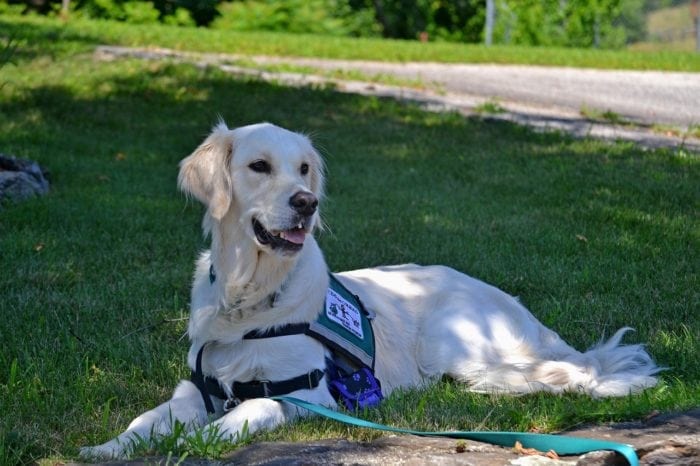10 Common Courtesies To Offer People Who Are Blind
Published onHow do I interact with someone who has a visual disability?
Many people have never interacted with someone who has blindness or a visual disability. Or if they have, they weren’t aware. Television and movies rarely portray people with disabilities accurately. This can lead to misconceptions. Keep in mind there is no need to treat people with visual disabilities differently. It doesn’t require special skills to interact with a person who has blindness. Remember that you’re interacting with a whole person, not their disability. Show them the respect they deserve and offer the following courtesies to people who are blind.
How To Show Courtesy
- Offer help. If you see a person with blindness who seems to need help, offer your services. Speak directly to them, not through a third party, and let them know you are addressing them. If your help is refused, that’s okay!
- Assist, don’t push. Pushing isn’t polite. If you want to assist an individual with blindness, offer your arm. Taking your arm will allow them to follow the motions of your body. If they have a guide dog, ask if they’d prefer to take your arm or follow you.
- Communicate when you’re leaving. Before parting ways with a person who is blind, ask them if they need any more assistance. If they do not require anything further, let them know you are leaving.
- Give helpful directions. Always give directions to a person with blindness according to the way they are facing. Pointing and giving vague descriptions, such as “over there”, won’t help. Let them know specifics, “Go straight for about five feet and the door is to the right” If you must use specific street or landmark names, make sure they are familiar with the area.
- Don’t change your vocabulary. It’s okay to use words like “look” and “see” when conversing with a person who is blind. Words like these are likely as much a part of their vocabulary as yours.
- Don’t pet the pooch. As tempting as it may be to pet a guide dog, remember that these dogs are working very important jobs. For the safety of the dogs and the people they are leading, the dogs should not be touched. Guide dogs undergo a great deal of training. Even a well-intended bit of attention can undo that training and possibly render the dog unable to continue as a guide dog. When the guide dog is not working, they are able to get all the love and attention dogs require.
- Tell them what’s for dinner. When serving or eating with a person who is blind, tell them what is being served. For example, explain the position of the items in front of them and on the plate by relating their position to the numbers on the face of a clock.
- Leave things where they are. When visiting a person who has blindness’ home or office, don’t move objects around. Even if you think you’re helping, you may be doing more harm than good. Chances are, the person with blindness knows where they keep things and expects objects to be where they placed them.
- No sight, no limits. Most people who are blind will gladly discuss blindness if asked, but remember that it’s an old story to them. They have just as many interests as you do. Don’t make the assumption that their blindness rules their life.
- Skip the emojis. When communicating with a person who has blindness through social media, text, or email, remember that screen readers provide literal translations of emojis. Would you want to sit through a barrage of emoji descriptions like, “smiling face with sunglasses,” or “nerdy face with glasses and buck teeth”? So, it’s best to keep them to a minimum to avoid unnecessary distractions.
Bringing It All Together
Always treat people with blindness and other disabilities with respect and consideration. Blindness shouldn’t be the focus of every interaction they have with others. If you can, offer help, but only when it’s wanted or needed. And, of course, make sure to do so in a respectful way.
To sum up, remember people with blindness are just like everyone else. Being blind does not define them. Think about how you want people to treat you and act accordingly. You might just find out you are more alike than different.

Categorized in: Health and Wellness, Informational, Offbeat, Opinion
This post was written by





Comments are closed here.